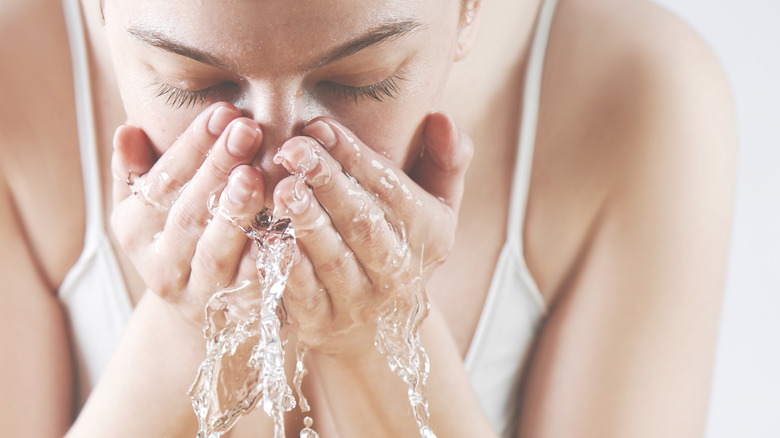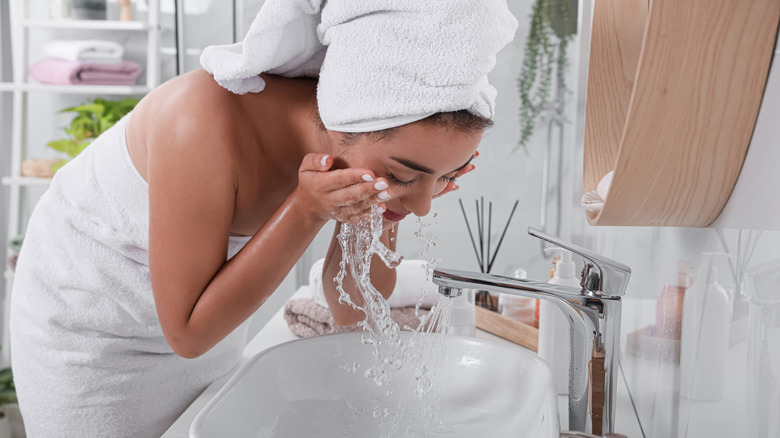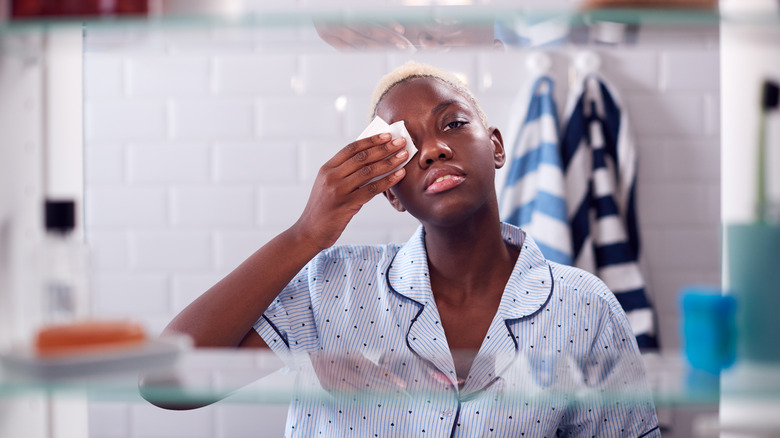How Much Time Should You Spend Washing Your Face?
For some reason, the internet seems to love telling us how much time we should be spending doing things. You've got the three-minute planks for those perfectly toned abs, an optimal 5-10 minutes for showers, and about 40 minutes of meditation if you're to reap any benefits from the practice. When did timing these activities become a thing?
For one, these time-related conversations have forced people to pay attention to their everyday mundane tasks. No more rushing through brushing your teeth at night or skimping on the seconds you spend preparing your breakfast each morning. With the constant rush we're in as humans, there is often benefits to this intentionality and mindfulness.
Your face is likely one of the few features you pay attention to before rushing out the door every morning, even if you're someone who doesn't spend hours in front of the mirror. A tiny blemish or scar would probably catch your eye and you're definitely not going to miss those dark circles from having stayed up the night before. Maybe you also know of the things you should never be putting on your face (like deodorant or hair dye), but have you ever wondered if your quick "rinse and run" method of skincare was doing you any favors? How much time (if there's even such a thing) should you be spending washing your face?
It all depends on a few factors
Dermatologist Dr. Dray, in a YouTube vlog cautions about following these "times" when it comes to washing your face, mainly because over-washing can do more harm than good. Your facial skin has natural barriers and oils that keep it hydrated and healthy, and scrubbing those off by spending too much time washing your face, is only going to irritate your skin. Also, different skin types require different kinds of products and some of those products could have ingredients that dry out your skin as well. All of these come into play when assigning a time limit for washing your face. So does the fact of whether you wear makeup or not.
Dermatologist Dr. Marisa Garshick told Pure Wow that getting the best out of any kind of cleanser you're using would require for the substance to be on your face for an adequate amount of time. For example, when it comes to benzoyl peroxide or salicylic acid, the ingredients would require some time to become effective.
"That said, generally an average of 30 to 60 seconds should be enough for most people," explained Garshick. Perhaps, the focus shouldn't be so much on the number of seconds you're washing your facing for, but on your skin type, particular skin condition (if any), and the kind of cleanser you're using. There really is no rule that's carved in stone.
How to wash your face properly
Even if there might be some dispute over the time you should be spending rinsing the dirt and grime off your face every day, there are some widely accepted best practices that apply to the ritual.
For starters, on the question of how often you should be splashing water on your face, experts seem to stop at the limit of two (unless of course you've worked up a lot of sweat and dirt doing something outdoors and want to rinse all of it off). And while it's good to use some form of cleanser at both times, you can just stick to water in the mornings if your skin is extra sensitive. Paying attention to the ingredients in your face-wash is another important tip. You don't want to be using something that's making your already dry skin even more flaky or your oily skin more greasy. If you're acne-prone, you should be using doctor-recommended cleansers that have active ingredients to help with the condition. Do this with makeup removers too.
Using lukewarm water is another crucial step. "Extreme temperatures, such as hot, steamy showers or hot water, can cause dilation of blood vessels and breakage of delicate tissue," skin specialist Joshua Zeichner told Self. Once you've gently and thoroughly cleansed your face, pat your skin dry with a clean towel and moisturize. In fact, if you're someone who wears makeup, experts recommend putting on moisturizer before you apply foundation to your face.


